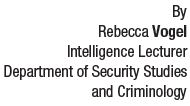
 The approaching “fourth industrial revolution” was the theme for the 2016 World Economic Forum, and a global report entitled, Amplifying Human Potential was released at the Forum. The report discussed the digital technologies young workers will need to navigate and the skills they will need. The report reiterated the importance of education—that “through education, there is an unassailable opportunity to prepare everyone for such a change (Infosys, 2016).”
The approaching “fourth industrial revolution” was the theme for the 2016 World Economic Forum, and a global report entitled, Amplifying Human Potential was released at the Forum. The report discussed the digital technologies young workers will need to navigate and the skills they will need. The report reiterated the importance of education—that “through education, there is an unassailable opportunity to prepare everyone for such a change (Infosys, 2016).”
The education system, both at a secondary level and the tertiary level, needs to be directly involved in programs to enhance cybersecurity skills. While the tertiary level appears to be moving in the right direction, in 2014, 64% of high school students America did not have access to computer science classes or other classes that would help prepare them for a career in cybersecurity (Raytheon, 2014). Industry experts consider that even if schools place a much stronger emphasis on cyber security, it may take up to twenty years for the skills gap to close (L. Morgan, 2014).
Increased Workforce Capability
In October 2012, the FBI launched its Next Generation Cyber Initiative, which was aimed at enhancing the Bureau’s ability to deal with cybersecurity issues. To do this, the FBI sought to hire more computer scientists. While the FBI has made some progress toward this goal, recruitment and retention of qualified candidates is reported to remain a challenge; this is because there are higher salaries offered in private industry (Dunsmuir, 2015). Tellingly, a 2015 audit of the Next Generation Cyber Initiative showed the FBI was not able to hire 52 of the 134 computer scientists it was authorised to recruit, presumably because of the lower wages the Bureau offered (Office of the Inspector General, 2015)…Click here to read full article.






